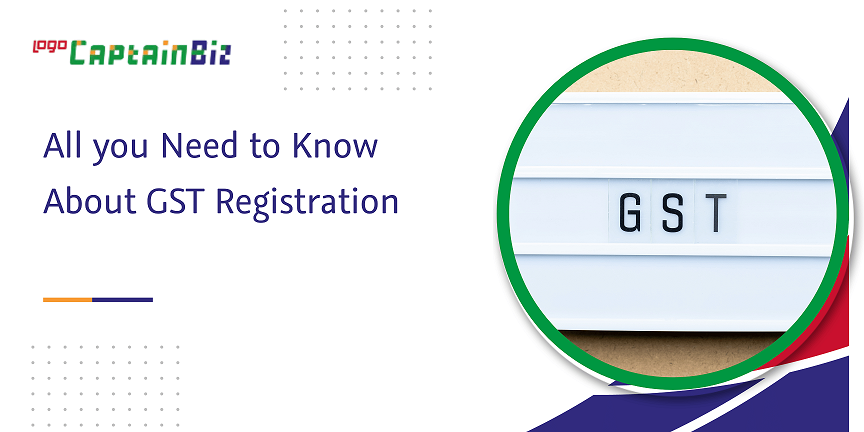Why Businesses Favor the very best GST Registration Services in Singapore
Why Businesses Favor the very best GST Registration Services in Singapore
Blog Article
Throughout: The Ultimate Roadmap to GST Enrollment for Services Seeking Financial Security
Browsing the complexities of Goods and Solutions Tax (GST) enrollment is an essential step for companies striving for monetary security. Breaking down the roadmap into convenient actions can improve the enrollment trip for companies looking to enhance their monetary standing.
Recognizing GST Basics
Digging into the fundamental concepts of Item and Services Tax (GST) is important for obtaining an extensive understanding of its ramifications on services and the economic climate. GST is a value-added tax levied on many items and services for domestic consumption. It has actually replaced numerous indirect tax obligations that existed in the pre-GST period, improving the tax structure and improving convenience of doing service in India. Under the GST system, both services and goods are taxed at a certain rate, which is determined based upon their classification. If their yearly turn over exceeds the threshold restriction set by the federal government, services are required to register for GST. Input Tax Obligation Debt (ITC) is a substantial attribute of GST, enabling services to declare credit scores for tax obligations paid on inputs, lowering the overall tax obligation worry. Recognizing the fundamentals of GST is important for businesses to follow tax obligation laws, manage their funds effectively, and contribute to the country's financial development by joining a transparent tax obligation system.
Qualification Criteria for Enrollment
To sign up for GST, services have to fulfill particular eligibility standards developed by the government. The primary qualification need is that any type of organization associated with the supply of items or services with a yearly aggregate turn over above the threshold limit set by the authorities must register for GST. Since the present policies, the threshold limitation for GST enrollment is an annual accumulation turn over of 40 lakhs for companies operating within a state, with the exception of unique classification states where the limit is 20 lakhs. Additionally, particular services are needed to register for GST regardless of their turn over, such as interstate vendors, laid-back taxable individuals, and companies liable to pay tax obligation under the reverse fee mechanism. It is essential for businesses to extensively examine their turnover and purchase types to determine their GST enrollment responsibilities precisely. Failure to sign up for GST when eligible can cause charges and legal repercussions, making it vital for organizations to follow the specified qualification criteria.
Files Required for Registration
Having actually fulfilled the eligibility criteria for GST registration, services have to now ensure they have the requisite papers in position to wage the enrollment process efficiently. The records required for GST registration generally consist of proof of organization constitution, such as partnership act, enrollment certification, or incorporation certification for different kinds of companies. In addition, businesses need to supply records developing the major business, such as a rental arrangement or electricity bill. PAN card of the business, as well as the identification and address evidence click now of promoters/partners/directors, are essential for confirmation objectives. Financial institution account declarations, in addition to terminated cheques or a duplicate of the financial institution passbook, are called for to validate the financial information provided throughout enrollment. Moreover, companies should have electronic signatures all set for the accredited notary. Guaranteeing all these documents are arranged and easily available will certainly speed up the GST enrollment procedure, making it possible for businesses to adhere to tax policies effortlessly.
Step-by-Step Enrollment Process
Starting the GST registration process entails a series of organized actions to guarantee a smooth and compliant registration for businesses. The initial step is to visit the GST site and fill in the enrollment kind with accurate information of business entity. Following this, the applicant obtains a Short-lived Recommendation Number (TRN) which is used to resume the application process if it's not finished in one go.
Following, all called for documents according to the checklist supplied by the GST portal need to be published. These documents normally consist of evidence of business identity, address and registration proofs of promoters, economic declarations, and business entity's frying pan card.

Post-Registration Compliance Standards

Conclusion
To conclude, businesses looking for economic security should comprehend the basics of GST, meet qualification standards, gather necessary records, adhere to the detailed registration procedure, and adhere to post-registration standards - Best GST registration services in Singapore. By adhering to these actions, organizations can make sure compliance with tax obligation laws and preserve financial security in the future
Additionally, particular services are needed to register for GST irrespective of their turn over, such as interstate distributors, informal taxable individuals, and services responsible to pay tax obligation under the reverse fee system.Having actually satisfied the eligibility standards for GST registration, organizations need to now guarantee they have the requisite documents in area to proceed with the enrollment process effectively. The documents needed for GST enrollment normally include evidence of business constitution, such as collaboration deed, registration certificate, or consolidation certification for different kinds get redirected here of companies. Additionally, organizations need to supply documents establishing the major place of service, such as a rental agreement or electrical energy costs.Commencing the GST enrollment procedure involves a series of organized actions to guarantee a compliant and seamless enrollment for organizations.
Report this page